Understanding a Youth's Education Needs
Educational Advocacy
What is the best way to make sure you are prepared to advocate for your foster youth's academic needs? It may seem obvious, but you must get to know them!
Your first goal as a CASA is to spend time learning about your youth: what are their hopes, dreams, fears, and aspirations? The same questions easily apply to their educational experience. Feel free to ask about extracurricular activities, friends, teachers, classes, homework, and more.
The list below serves as an overview of the kinds of questions you may want to ask. Try to keep your questions open-ended; give your youth the opportunity to be thoughtful with their answers instead of asking yes or no questions. Check back on these questions periodically, even if your student seems to be on track.
General
Do you like school? Why or why not?
What is your favorite part about your school?
What is hardest for you about school?
How important is school for you right now?
Are you doing as well in school as you would like to?
Classes
Asking about classes can help you develop a sense of what kind learner your foster youth may be. It can also provide you with insight into whether they may need special education or other extra support.
How do you like your teacher(s)? Do you have a favorite teacher?
Do you have a favorite subject? Why is it your favorite?
Do you have a least favorite subject? What do you not like about it?
Is it easy or tough to sit in class for a full period? For a full day?
How do you like working on projects with your classmates?
Home Support
It is important for a foster youth to also have support outside of school, particularly as their workload increases with age and grade level.
Do you have a good place to do your homework?
When you have questions about what you are learning, do you feel like you have someone to ask?
Do you feel supported in school by your caregiver?
Do you feel like you have enough supplies and tools to get your work done?
Extracurricular
A CASA should also be an advocate and resource for new opportunities that might inspire a youth beyond the classroom. Find out what your youth enjoys so you can help them find healthy outlets for those interests.
What do you like to do outside of school?
Are there any activities that you have done in the past that you would like be doing now?
Are there any activities that you have not done that you would like to be doing now? Maybe that you have seen friends do?
Future
Some foster youth may not have been asked about what their goals are. Even if they do not have answers, encourage them to think about their plans for the future. This is a great exercise for students of any age.
Do you know what do you want to do when you grow up/graduate?
What are your goals/hopes/dreams/ideas for what you will do after school?
Do you know what it takes to get there? (e.g. good grades, vocational program, college degree, etc.)
What else do you need now to be able to get there?
Getting to know your foster youth is an ongoing process. The longer you work closely with a youth, the better sense you will get of their wants, needs, and goals for school and beyond.
Additional Resources
Judicial Council Checklist: use this checklist as a guide in addition to the questions above to develop an understanding of your youth's educational aspirations and goals.
Expanding Pathways to Success in School and in the Workplace with a Disability
